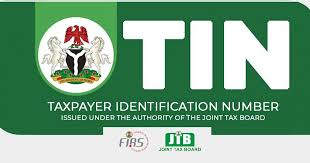The Federal Government has announced that Tax Identification Numbers (Tax ID) will become compulsory for Nigerians and organisations involved in banking, insurance, stock trading, and other allied services starting from January 1, 2026. The measure is contained in the new Nigeria Tax Administration Act, 2025, recently signed into law by President Bola Ahmed Tinubu.
The law, under Part II Section 4, states clearly that every taxable Nigerian must register with the relevant tax authority and obtain a Taxpayer Identification Card (Tax ID) to comply with tax obligations. It further mandates that all ministries, departments, and agencies (MDAs) of federal, state, and local governments must also register and obtain a Tax ID.
The new requirement will cover not just residents in Nigeria but also foreigners doing business in the country. Section 6 (1) of the Act stipulates that non-resident persons who supply taxable goods or services to Nigerians must also obtain a Tax ID, as they are required to pay taxes in Nigeria.
The Act empowers the relevant tax authority to issue Tax IDs to people who have not applied for them, ensuring no taxable individual or organisation operates outside the net. However, Section 7 (3) also gives the authority the right to deny an application for a Tax ID if information available to it shows that the applicant should not qualify. In such cases, the authority must inform the applicant of its decision within five working days.
From 2026, Tax IDs will also become a condition for business and government contracts. Section 8 (1) (c) states that no person or organisation will be able to enter into a contract with the Federal or State Governments without a Tax ID. Section 8 (2) goes further to make the Tax ID a compulsory requirement for operating a bank account or accessing services in the insurance, stock market, or financial investment sectors.
The new law also makes provisions for suspension or deregistration of Tax IDs. Section 10 explains that if a taxable person temporarily stops trading or doing business, they must inform the tax authority within 30 days, after which the Tax ID will be classified as “dormant” until business resumes. Where business ceases permanently, the person must apply for deregistration within 30 days.
The Tax Administration Act is part of a broader reform agenda that includes the creation of the Nigeria Revenue Service (NRS), which replaces the Federal Inland Revenue Service (FIRS). The new agency has been granted wider powers and more financial autonomy.
The Nigeria Revenue Service Act, 2025, provides that the Executive Chairman of the NRS will also serve as Chairman of its Governing Board, giving the office significant influence. The Board will include top representatives from the Ministry of Finance, National Planning, Attorney-General’s office, Ministry of Petroleum, Central Bank of Nigeria, the Revenue Mobilisation Allocation and Fiscal Commission, the Nigeria Customs Service, and the Corporate Affairs Commission, alongside executive directors appointed by the President.
The Chairman of the NRS will serve a four-year term, renewable for another four years. Under Section 22 (a) of the Act, the Service will fund its operations by deducting 4 percent of all revenues it collects, excluding petroleum royalties. This provision means the agency will have guaranteed funding to strengthen tax collection nationwide.
Analysts say the compulsory use of Tax IDs is expected to widen Nigeria’s tax base, reduce leakages, and increase government revenue. It is also likely to improve transparency in financial transactions and strengthen compliance in both the private and public sectors. However, questions remain about how easily ordinary Nigerians will be able to register and whether the system will be free of bureaucratic bottlenecks.
The Federal Government has argued that the reforms are necessary to boost revenue generation, especially as oil earnings remain unstable. Nigeria’s tax-to-GDP ratio is currently among the lowest in Africa, at less than 10 percent, compared to the continental average of 16 percent. By linking Tax IDs to banking, contracts, and allied services, the government hopes to ensure that more individuals and businesses contribute to national development.
The move is also expected to affect small business owners, traders, and professionals who rely heavily on banking services. With the deadline of January 2026, financial institutions and allied service providers are expected to begin sensitisation campaigns to prepare their customers for the new compliance requirements.
While the policy is seen as a bold step towards reforming Nigeria’s tax system, experts have called for the process to be simplified and accessible. They argue that efficient registration systems, digital platforms, and transparency in implementation will determine whether the Tax ID initiative succeeds or simply adds another layer of difficulty for Nigerians.
